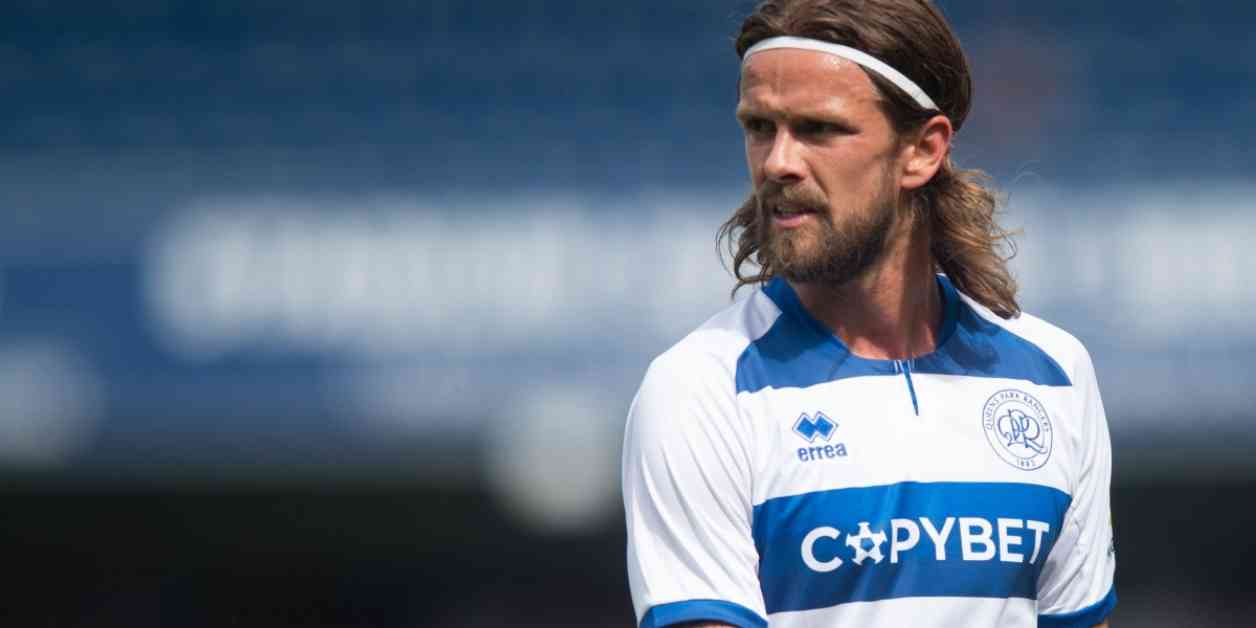QPR will be facing Plymouth in their upcoming match without the presence of Lucas Andersen, who sustained a thigh injury during the team’s recent game against Sheffield United. Despite this setback, head coach Marti Cifuentes remains optimistic about Andersen’s prompt return to the field.
Andersen’s injury occurred while he was taking a corner kick, resulting in a small muscular strain in his adductor. Cifuentes explained, “He got a small muscular strain in his adductor while striking his corner. He is in the recovery process.” Fortunately, the injury is not severe, and Andersen has been participating in light training sessions this week, indicating a positive trajectory towards his comeback.
Cifuentes expressed relief that the injury was not more serious, stating, “The good thing is that it’s not a big one and he has already been on the pitch the last couple of days, feeling better and better.” While the exact timeline for Andersen’s return remains uncertain, his progress in training suggests that he may rejoin the team sooner rather than later.
In addition to Andersen’s absence, QPR will also be missing Ilias Chair and Morgan Fox for the upcoming match. Chair is expected to be sidelined for several more weeks due to a back problem, further challenging the team’s depth in the midfield and defensive areas.
### Andersen’s Injury Update and Recovery Process
The setback faced by Andersen has raised concerns among QPR fans, as the midfielder has been a key player for the team in recent matches. However, Cifuentes’ reassurance regarding the nature of the injury and Andersen’s positive response to treatment provide hope for a speedy recovery.
Further elaborating on Andersen’s injury, Cifuentes mentioned, “It was a small rupture in his adductor. The good thing is that it’s not a big one and he has already been on the pitch the last couple of days, feeling better and better.” This detailed insight into the injury helps fans understand the extent of the issue and the progress Andersen is making towards his return.
The support and encouragement from the coaching staff and medical team have been instrumental in Andersen’s recovery process. By engaging in light training activities and gradually increasing his workload, Andersen is on track to rejoin his teammates on the field and resume his contributions to the team’s success.
### QPR’s Lineup Adjustments and Strategies for Plymouth Match
With Andersen, Chair, and Fox sidelined for the upcoming match against Plymouth, QPR will need to make strategic lineup adjustments to compensate for the absence of key players. Cifuentes and his coaching staff are likely considering various options to maintain the team’s competitive edge and secure a positive result in the upcoming fixture.
The absence of Andersen in the midfield may prompt Cifuentes to explore alternative formations or player rotations to ensure a cohesive and effective gameplay strategy. By leveraging the depth of the squad and providing opportunities for other players to step up, QPR can adapt to the challenges posed by injuries and maintain their performance standards.
The collective effort and resilience of the team will be crucial in overcoming the absence of key players and maintaining a competitive edge against Plymouth. Cifuentes’ leadership and strategic decision-making will play a pivotal role in guiding the team through this challenging period and maximizing their potential on the field.
### Injury Prevention and Player Fitness Management
As injuries continue to be a prevalent issue in professional football, clubs like QPR must prioritize injury prevention strategies and player fitness management to safeguard the well-being of their athletes. Through targeted training programs, proper recovery protocols, and ongoing monitoring of player health, teams can reduce the risk of injuries and enhance performance levels on the field.
The role of the medical and sports science staff in assessing player fitness, identifying potential injury risks, and implementing preventive measures is instrumental in maintaining the overall health and longevity of the squad. By incorporating data-driven approaches and innovative technologies, clubs can optimize player performance, mitigate injury risks, and support long-term athletic development.
Cifuentes and his coaching staff are likely to emphasize the importance of player wellness and injury prevention in their training sessions and match preparations. By fostering a culture of health and fitness within the team, QPR can minimize the impact of injuries on their squad and maximize the availability of key players for crucial fixtures throughout the season.
In conclusion, while Andersen’s absence presents a temporary setback for QPR, the team’s resilience and adaptability will be tested in the upcoming match against Plymouth. By leveraging the depth of their squad, implementing strategic lineup adjustments, and prioritizing injury prevention strategies, QPR can navigate through this challenging period and maintain their competitive edge in the league. The collective effort and determination of the players, coaching staff, and medical team will be crucial in overcoming obstacles and achieving success on the field.

